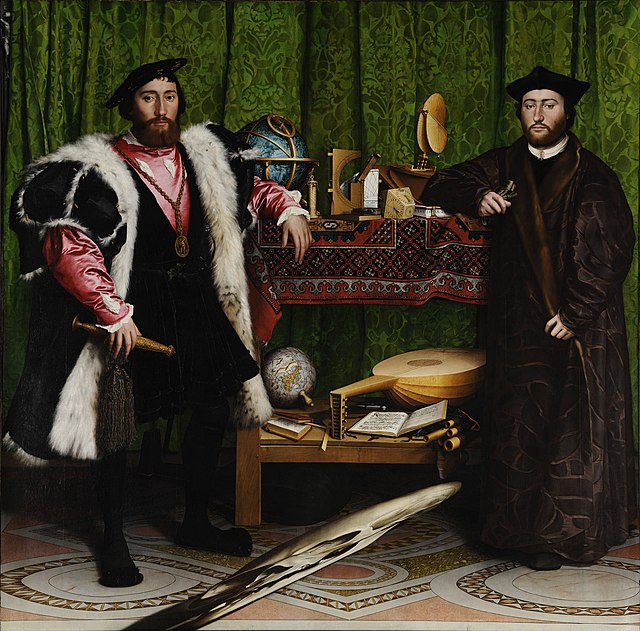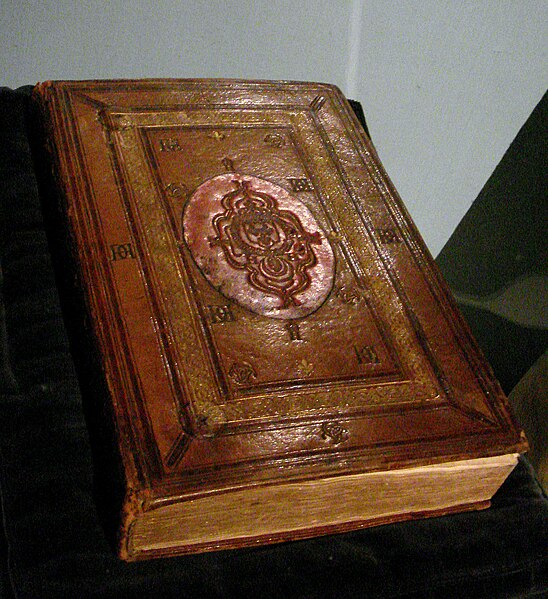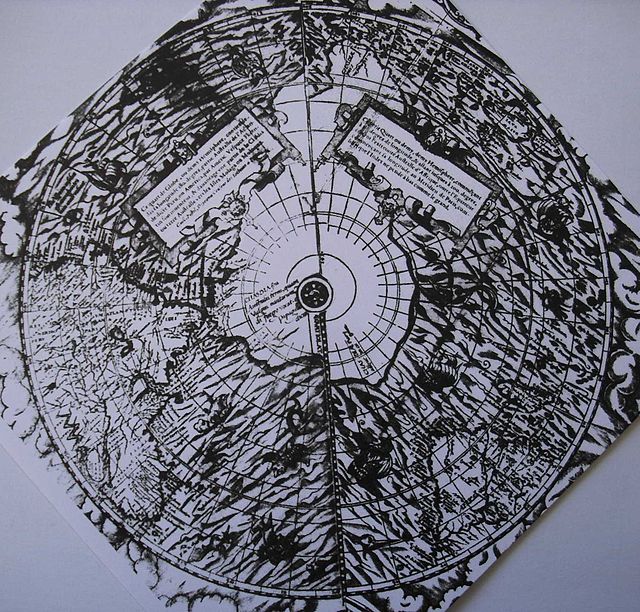Orientalism in early modern France
In early modern France, Orientalism refers to the interaction of pre-modern France with the Orient, and especially the cultural, scientific, artistic and intellectual impact of these interactions, ranging from the academic field of Oriental studies to Orientalism in fashions in the decorative arts.
"Traités nouveaux & curieux du café du thé et du chocolate", by Philippe Sylvestre Dufour, 1685.
The Ambassadors, a symbol of French explorations under Francis I: the French ambassadors Jean de Dinteville and Georges de Selve standing around an Ottoman Holbein carpet and various objects. Painting by Hans Holbein the Younger, 1533, National Gallery, London.
Arabic astronomical manuscript of Nasir al-Din al-Tusi, annotated by Guillaume Postel.
Ottoman Empire Qur'an, copied circa 1536, bound according to regulations set under Francis I circa 1549, with arms of Henri II. Bibliothèque nationale de France.
Guillaume Postel was a French linguist, Orientalist, astronomer, Christian Kabbalist, diplomat, polyglot, professor, religious universalist, and writer.
Postel as depicted in Les vrais pourtraits et vies des hommes illustres grecz, latins et payens (1584) by André Thevet
Note of Guillaume Postel on the Arabic astronomical manuscript of al-Kharaqī, Muntahā al-idrāk fī taqāsīm al-aflāk ("The Ultimate Grasp of the Divisions of Spheres"), 1536, Constantinople
De la République des Turcs, Guillaume Postel, Poitiers, 1560
Guillaume Postel: "Chasdia or Terra Australis, which the common sailors call Tierra del Fuego and others say is the Land of the Parrots"








